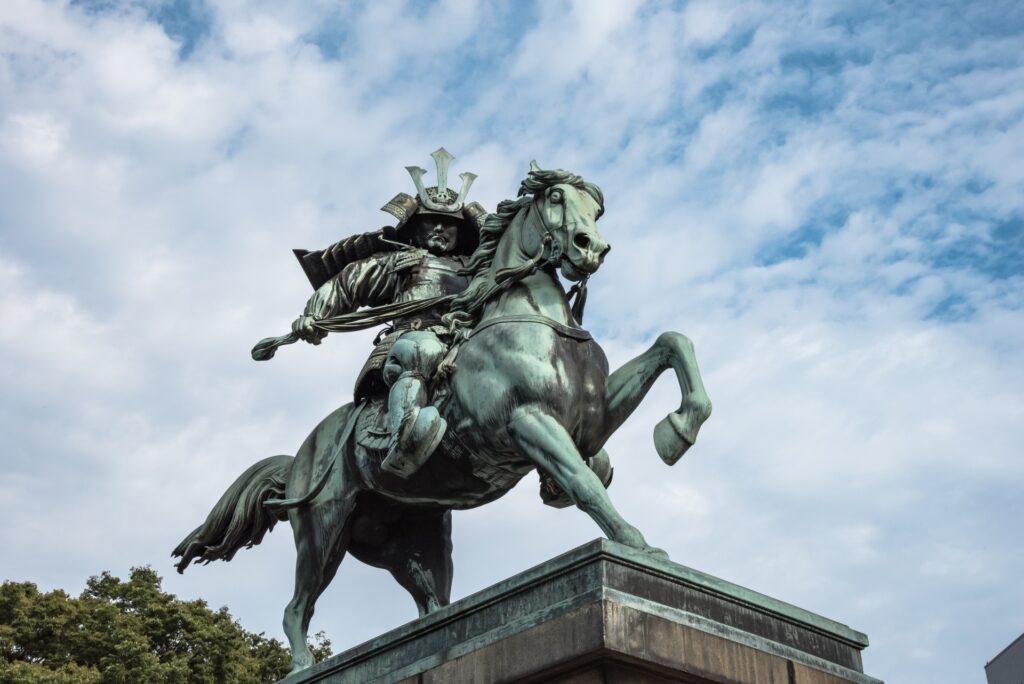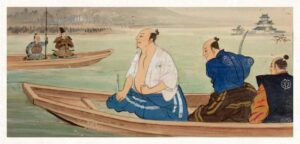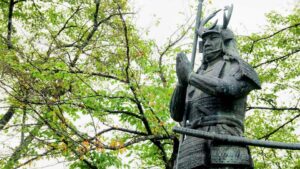“True power lies not in control, but in self-discipline.”

🔶 Introduction: A Misunderstood History
After WWII, many Japanese were taught that samurai were the ruling class (shi-nō-kō-shō), and that farmers lived under harsh oppression.
But this interpretation, heavily influenced by Marxist class theory, tells more about modern ideology than it does about historical truth.
In reality, the samurai were not oppressive elites.
They were moral role models whose disciplined lives shaped the ethical foundation of Japanese society.
🔶 1. The Samurai’s Role: Guardians of Order
Unlike Western and Chinese societies based on domination, Japan’s samurai lived among the people, not above them.
💠 When Could a Samurai Draw His Sword?
A samurai was only permitted to draw his sword under three conditions:
1. By order of his lord (e.g., in battle)
2. When physically attacked
3. When witnessing injustice directly
⚔️ If he drew his sword, he must use it—and afterward, he must take responsibility with his own life.
This was not symbolic.
Samurai sharpened their blades daily not to kill others, but to ensure that if they ever had to commit seppuku (ritual suicide), the cut would be swift and clean.
“A rusty blade may harm others, but a polished blade is for one’s own resolve.”
🔶 2. Discipline in Daily Life
Samurai ethics were woven into every moment of daily life.
Aspect Samurai Discipline
Clothing Always wore formal attire, even in extreme heat
Meals Simple: one soup, up to three side dishes; luxury was forbidden
Speech Avoided saying “delicious” — instead, considered if society would be satisfied
Childhood Rules No complaints about cold, hunger, or fatigue — hardship was shared, not voiced
Education Studied in seiza (kneeling posture), no matter how long or painful it became
🔶 3. My Childhood — A Lesson in Samurai Spirit
Growing up, I was raised with similar values.
If I left rice uneaten, it would be kept until it turned sour and sticky—yet I had to finish every grain before being served fresh rice.
🍚 Discipline was not punishment. It was a lesson in responsibility.
This wasn’t cruelty—it was a way to learn that comfort is earned, not given.
🔶 4. Order Through Example, Not Control
Some say samurai lived in large estates and collected taxes, therefore they were rulers.
But these estates were assigned, not owned. Samurai had no days off.
Their lives were lived in service—24/7 duty, known as “jōzai-senjō” (常在戦場), “Always on the battlefield.”
Most rice they collected wasn’t for personal use, but for disaster reserves.
In a land prone to earthquakes and floods, samurai bore the burden of security for all.
✨ In Western or Chinese systems, privilege allowed decadence.
In Japan, privilege demanded integrity.
🔶 5. Why Law Alone Cannot Sustain Order
Written laws are two-dimensional.
But real society is multi-dimensional, shaped by time, context, emotion, and human interaction.
📜 Law = words on paper
🧍 Samurai = living law
By living as examples—not enforcers—samurai cultivated harmony that no statute could command.
🔶 Conclusion: Returning to the Way
Japan’s strength was never built on domination.
It was built on shared hardship, ethical discipline, and the silent strength of those who lived for others.
In times of uncertainty, we must return to our roots.
And one such root is the Way of the Samurai.
“Not rulers. But lights that guided the people.”


